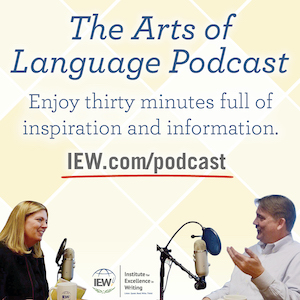The resources that you find on this page are in APA format. I used this format because this website is designed as a graduate school project. In the field of education, all research is formatted using APA style. The only error in formatting that is known is the lack of hanging indentations this is due to the website format and not an intentional misprint.
Bailey, R., Pearce, G., Smith, C., Sutherland, M., Stack, N., Winstanley, C., & Dickenson, M. (2012). Improving the educational achievement of gifted and talented students: A systematic review. Talent Development & Excellence, 4(1), 33-48.
Bannier, B. J. (2007). Home schooling and developmental education: Learning from each other. Research & Teaching in Developmental Education, 23(2), 62-68.
Blair, R. (2011). Online learning for gifted students from the parents’ perspectives. Gifted Child Today, 34(3), 28-30.
Butler, S. (2000). The ‘H’ word: Home schooling. Gifted Child Today, 23(5), 44.
Cogan, M. F. (2010). Exploring academic outcomes of homeschooled students. Journal of College Admission, (208), 18-25. Retrieved from http://search.proquest.com/docview/665263474?accountid=12085
Collom, E. (2005). The ins and outs of homeschooling: The determinants of parental motivations and student achievement. Education and Urban Society, 37, 307-335. Retrieved from http://eus.sagepub.com/content/37/3/307.abstract
Cooper, B. S., & Sureau, J. (2007). The politics of homeschooling: New developments, new challenges. Educational Policy, 21(1), 110–131. doi: 10.1177/0895904806296856
Duquette, C., Orders, S., Fullarton, S., & Robertson-Grewal, K. (2011). Fighting for their rights: Advocacy experiences of parents of children identified with intellectual giftedness. Journal for the Education of the Gifted, 34(3), 488-512.
Gentry, M. (2006). No child left behind: Neglecting excellence. Roeper Review, 29(1), 24.
Gentry, M., Fugate, C. M., Wu, J., & Castellano, J. A. (2014). Gifted Native American students. Gifted Child Quarterly, 58(2), 98–110. doi: 10.1177/0016986214521660
Goodwin, C. B., & Gustavson, M. (2012). Education outside of the box: Homeschooling your gifted or twice-exceptional child. Understanding Our Gifted, 24(4), 8-11.
Grantham, T. C., & Collins, K. H. (2013). Upstander parents choosing to homeschool gifted black students. Parenting for High Potential, 2(8), 4-9. Retrieved from http://search.proquest.com/docview/1564429983?accountid=12085
Haensly, P. (2004). Parenting the gifted: The ongoing riddle of which nurture is best for what nature: Parents promoting gifted potential. Gifted Child Today, 27(1), 28-31.
Hargrove, K. (2012). From the classroom: Advocating acceleration. Gifted Child Today, 35(1), 72-73. doi: 10.1177/1076217511428309
Hebert, T. P., Pagnani, A. R., & Hammond, D. R. (2009). An examination of paternal influence on high-achieving gifted males. Journal for the Education of the Gifted, 33(2), 241-274.
Jolly, J. L., & Matthews, M. S. (2012, 09). A critique of the literature on parenting gifted learners. Journal for the Education of the Gifted, 35, 259-290. Retrieved from http://search.proquest.com/docview/1034605685?accountid=12085
Jolly, J. L., Matthews, M. S., Nester, J. (2004). Homeschooling the Gifted: A parent’s perspective. Gifted Child Quarterly, 57(2), 121-134. Retrieved from http://gcq.sagepub.com/content/57/2/121.abstract
Kearney, K. (1984). At home in Maine: Gifted children and homeschooling. Gifted Child Today, (33), 15-19.
Lamont, R. T. (2012). The fears and anxieties of gifted learners: Tips for parents and educators. Gifted Child Today, 35(4), 271-276.
Matthews, M. S., Georgiades, S. D., & Smith, L. F. (2011). How we formed a parent advocacy group and what we’ve learned in the process. Gifted Child Today, 34(4), 28-34. doi: 10.1177/1076217511415384
Martin-Chang, S., Gould, O. N., & Meuse, R. E. (2011). The impact of schooling on academic achievement: Evidence from homeschooled and traditionally schooled students. Canadian Journal of Behavioural Science, 43(3), 195-202. Retrieved from http://search.proquest.com/docview/878227015?accountid=12085
Morse, K. (2001). Is homeschooling right for you and your highly gifted child? Understanding Our Gifted, 14(1), 25-26
Nilles, K. (2014). Parents need support, too! Parenting for High Potential, 3(4), 8-11. Retrieved from http://search.proquest.com/docview/1563999768?accountid=12085
Rivero, L. (2002). Progressive digressions: Home schooling for self-actualization. Roeper Review, 24(4), 197-202. Retrieved from http://search.proquest.com/docview/206700657?accountid=12085
Rivero, L. (2012). Homeschooling worries: Trusting that the dots will connect. Understanding Our Gifted, 24(4), 3-7.
Romanowski, M. H. (2006). Revisiting the common myths about homeschooling. The Clearing House, 79(3), 125-129. Retrieved from http://search.proquest.com/docview/196880614?accountid=12085
Saranli, A. G., & Metin, E. N. (2014). The effects of the SENG parent education model on parents and gifted children. Egitim Ve Bilim, 39(175) Retrieved from http://search.proquest.com/docview/1626670565?accountid=12085
Smutny, J. F. (2012). Nurturing young gifted English language learners: A survival guide for parents. Parenting For High Potential, 2(2), 4-6.
Staehle, D. (2000). Taking a different path: A mother’s reflections on homeschooling. Roeper Review, 22(4), 270.
Stanley, L., & Weber, C. (2010). Providing parents with the information they need. Understanding Our Gifted, 22(2), 18-20
Wessling, S. (2012). Adapting curriculum for gifted learners. Understanding Our Gifted, 24(4), 12-14.
Wessling, S. (2013). Accidental homeschooler. Parenting for High Potential, 2(8), 10-13. Retrieved from http://search.proquest.com/docview/1564429670?accountid=12085
Winstanley, C. (2009). Too cool for school? Theory and Research in Education, 7(3), 347–362. doi: 10.1177/1477878509343736





